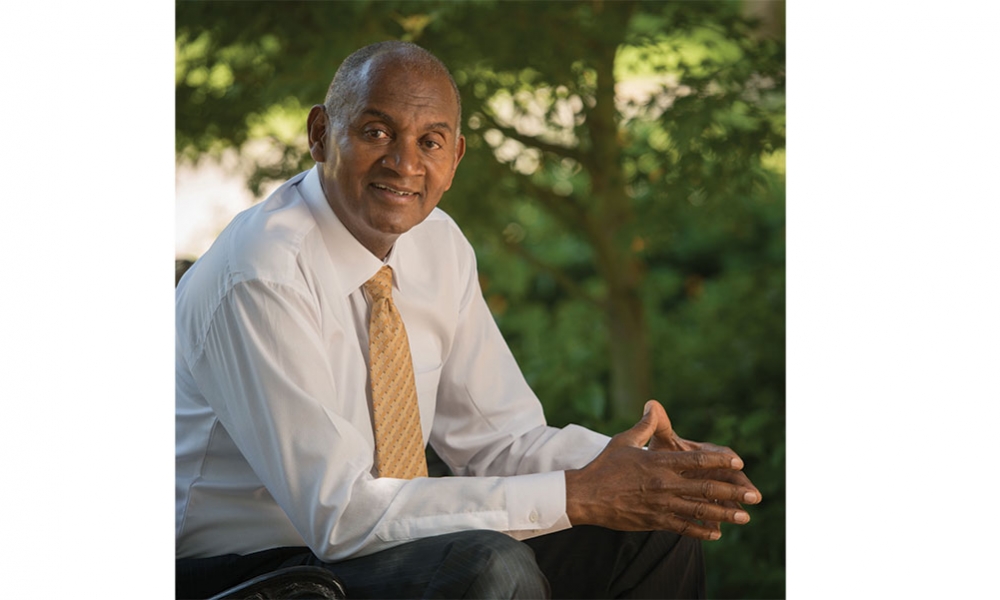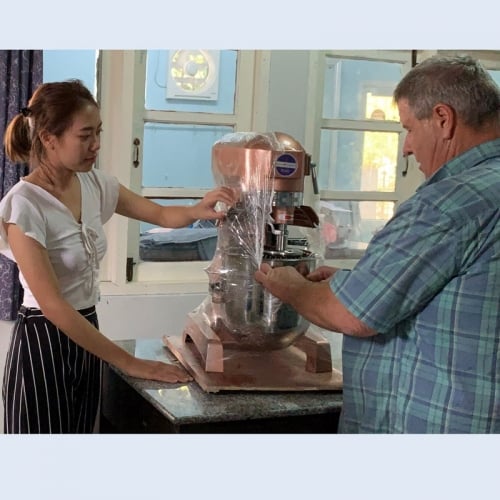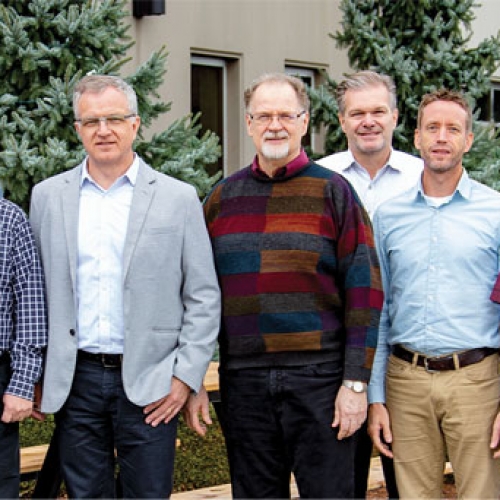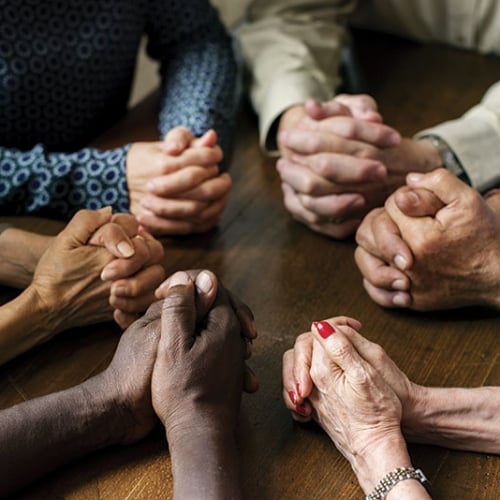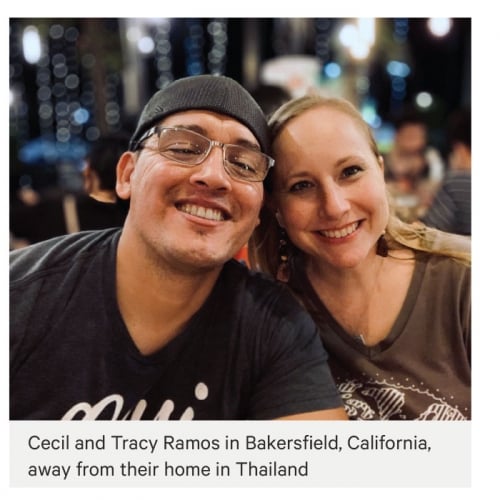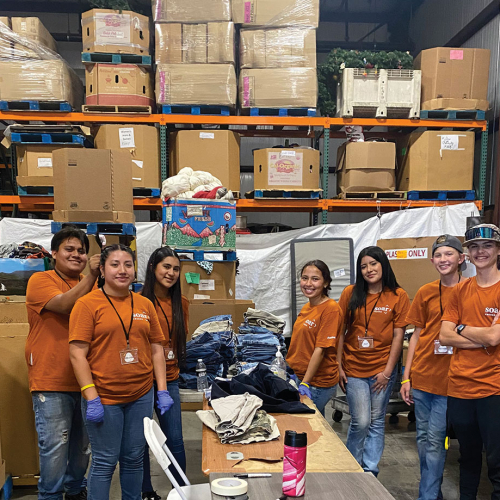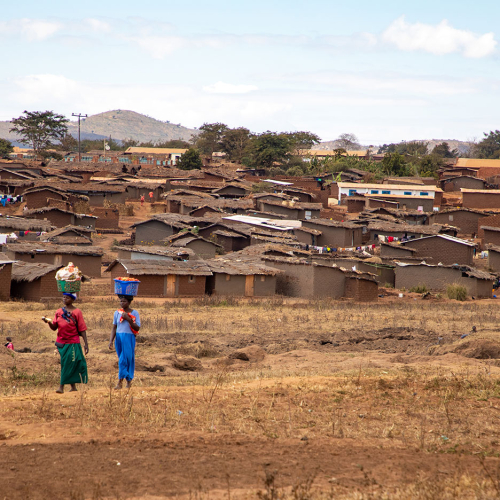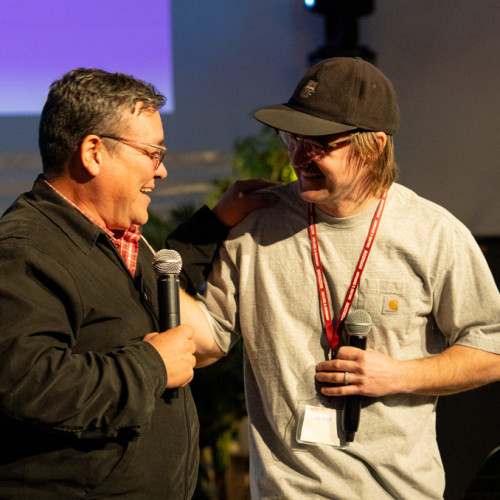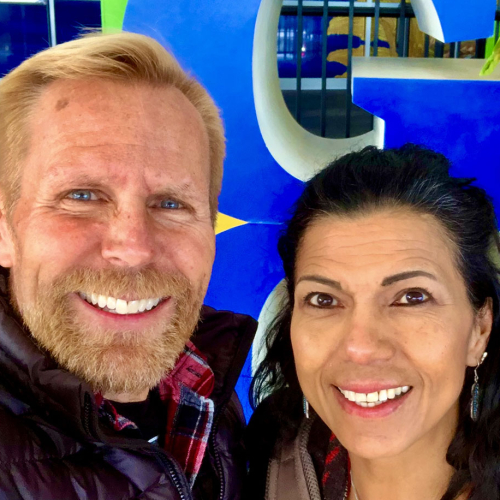Mark: Where are you from, Dr. Jones?
Dr. Jones: I grew up in the South [USA] during the height of the civil rights movement. The high school I attended still segregated blacks from whites. I attended the marches. I saw the beatings. Discrimination was everywhere. But we were told that education was the only way out, so we studied hard, even if we had to use textbooks that were discarded by the white schools. When I graduated, I wanted to get away from the South, so I applied to Colby College in Maine. To my surprise, I was accepted. But when I got there, I was told that it was only because of affirmative action that I was admitted. I was also told that I probably would not graduate. But I did.
Mark: How did you come to faith in Jesus?
Dr. Jones: Even though I grew up in the church, my faith was not personal for me. But in my senior year of high school, I made a commitment to follow Christ, and that changed everything. My relationship with Jesus gave me the courage to overcome the obstacles that I would face.
Mark: Can you give me an example of how your faith gave you courage?
Dr Jones: After several fruitful years in student ministry and prison ministry, my wife and I were praying and asking God, “What else do you have for us?” I knew I wanted to pursue doctoral studies, but for some reason, I was stuck. I had not applied anywhere. One night, I felt like God was asking me a question, “Why are you afraid?” I knew I was afraid of applying to a PhD program, because I was afraid of rejection. So I told God that if it was his will, then I needed to know for sure. I said I would apply to the top three programs in the country, and if I was accepted to one of them, I would go. So I got quick responses from the third top program and the second, both turning me down. But the top program in the country called me and invited me to come. So we sold everything and moved to Albany, New York. It was a door only God could open.
Mark: How did you get involved in Christian higher education?
Dr. Jones: During my doctoral studies, God opened a door for me to begin serving Christian colleges and universities, especially in their efforts to become more racially and culturally diverse. Through that, I realized that this was how I could multiply my influence, by developing students with hearts for God and sending them back into society to make an impact for the kingdom of God. For me, Christian higher education has always been about partnering with the church to serve society, to expand the impact of the Gospel. That’s been my calling.
Mark: How did you end up in Pakistan?
Dr. Jones: I had a very good position as the Provost at North Park University in Chicago. Then one day, I was reading the words of Jesus in the Gospel where he said, “Whoever wants to be my disciple must deny themselves and take up their cross and follow me” (Mark 8:34). I told God, “That’s what I’ve been doing!” But I felt God was saying that he had more for us, and it just kept coming to me, “Joe, you need to learn how to live a life of dying.”
Mark: What did that mean for you, “to live a life of dying”?
Dr. Jones: It meant obedience to Jesus, no matter what. After God spoke to me from that passage in the Gospel, I heard him say to me one day, “You need to resign.” There were so many reasons why I shouldn’t do that, but I kept hearing that question, “Are you willing to live a life of dying?” Leaving North Park was a huge risk for us in terms of our income and where we were at as a family. And I had no idea what was next. But we decided together as a couple that we would trust God and I would resign. We were just following Jesus.
Mark: Then what happened?
Dr. Jones: After much prayer, we heard about an opportunity at a place called Forman Christian College in Lahore, Pakistan. It was a college that had been taken over by the government but had recently been given back to the church. My wife and I decided to visit the college and we saw the need. The president and others from the Christian community said to us, “We’ve been praying for you for two years.” Despite all the obstacles in our way, the danger of the area, the persecution of Christians in the country, the need was the call for us. We couldn’t walk away from that opportunity.
Mark: What did you learn in Pakistan?
Dr. Jones: We saw a society there that was facing many of the same racial issues that America was facing. I realized in a new way that racial injustice was a global issue. It’s not unique to America. Really, it’s based on how people see God. We were given a unique opportunity in Pakistan to do something about these issues, to help train the next generation in that country—both Muslims and Christians—to be different, and to give a voice for Christians there. They are the minority, of course, and the poorest of the poor, but Forman is giving them a chance. For three academic years, we gave ourselves to that work.
Mark: What about now as an African American educator in the US, how do you feel about the most recent cases of racial violence?
Dr. Jones: This may sound strange, but I don’t feel any different about it. Because it’s not new, it’s ongoing. I’ve been facing this my whole life, and I’ve been speaking out about it and working on these issues my whole career. I’ve been teaching peacemaking and restorative justice for decades, but for me it’s all about Biblical justice. It all comes back to the command to love our neighbor as ourselves. This is the foundation of justice. If we respect our fellow human beings who are created in God’s image, we will work for justice. One of the problems our country is facing is that we focus too much on race and our differences. We talk too much about rights and about what’s best for this group or that. We need to focus more on loving our neighbors, no matter who they are.
Mark: What is your message for the Church in America?
Dr. Jones: My message for the Church is simple: repent and forgive. By repent, I don’t mean just saying sorry because you feel some sense of guilt for the way things are, but I mean turning around and doing something different. That means you have to look closely at how you’ve been doing things and then really start making changes. Forgiveness is essential because we’ve offended each other. As a follower of Christ, I must forgive. I don’t have a choice. We need to be humble and keep saying, “What can I learn? What can I do differently? Help me understand how I’ve contributed to the problem.” That kind of attitude will bring glory to Christ. During these days of uncertainty, we’ve all been reminded of how vulnerable we are. We can’t do this alone. We need to be humble and realize that other people have a lot to teach us.

